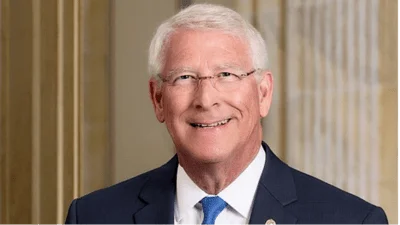WASHINGTON - The House Appropriations Committee today released the draft fiscal year 2020 Transportation, Housing and Urban Development, and Related Agencies funding bill, which will be considered in subcommittee on Thursday, May 23. The legislation funds the Department of Transportation, the Department of Housing and Urban Development, and other related agencies, including the United States Interagency Council on Homelessness.
In total, the legislation provides $137.1 billion in budgetary resources, an increase of $6 billion above the 2019 enacted level and $17.3 billion above the President’s budget request. The bill includes $75.8 billion in discretionary funding, an increase of $4.7 billion over the 2019 enacted level and $17.3 billion over the President’s 2020 budget request.
“This year’s transportation and housing funding bill makes significant new investments in infrastructure, prioritizes safety, and protects vulnerable populations - a stark contrast to the Trump administration’s draconian budget proposal," said House Appropriations Subcommittee on Transportation, Housing and Urban Development, and Related Agencies Chairman David Price. “The legislation not only provides much needed funding for roads, bridges, transit, rail, ports, and aviation, it robustly funds affordable housing programs and lays the groundwork to incorporate resiliency principles into community development planning, so we can build smarter and stronger. It allocates new resources for aviation safety, highway accident prevention, and research into emerging technologies that are transforming our transportation system. It prioritizes assistance for vulnerable populations, including the elderly, disabled, domestic violence victims, and homeless populations while preventing the administration from moving forward with its heartless plan to force 55,000 children with legal immigration status out of federally-assisted housing. Additional funding is provided to remove lead, install carbon monoxide detectors, and address other housing health hazards. This year’s T-HUD bill balances forward-looking investments with necessary funding for basic infrastructure, safety, and housing needs. It will benefit all American communities - urban and rural - and represents a positive, inclusive vision for our future. I look forward to working with my colleagues to enact it into law."
“This bill represents a forward-looking vision to making transportation and housing safer, improving and modernizing our infrastructure, expanding access to affordable housing and strengthening communities, protecting the most vulnerable, and enhancing America’s resilience to climate change," said House Appropriations Committee Chairwoman Nita Lowey. “With this bill, we are laying the foundations for sustained economic growth and expanded opportunity, so that every person has a better chance at a better life."
A summary of the draft fiscal year 2020 Transportation-Housing and Urban Development bill is below. The text of the bill is. The subcommittee markup will be webcast live and linked from https://appropriations.house.gov/events/markups.
Bill Summary:
Department of Transportation (DOT)- The bill provides a total of $86.6 billion in total budgetary resources for DOT - $167 million above the 2019 enacted level and $3.7 billion above the President’s budget request. Of this amount, the bill includes:
* $1 billion for National Infrastructure Investments (TIGER/BUILD), $100 million above the 2019 enacted level and equal to the President’s budget request.
* $10 million to start a new Highly Automated Systems Safety Center of Excellence. This program was not in the 2019 enacted bill or the President’s budget request.
* $17.7 billion for the Federal Aviation Administration (FAA), $267 million above the 2019 enacted level and $614 above the President’s budget request.
** $1.6 billion for Aviation Safety, $267 million above the 2019 enacted level and $276 million above the President’s budget request.
** $500 million for discretionary Airport Improvement Grants, equal to the 2019 enacted level and $500 million above the President’s budget request.
* $48.9 billion for the Federal Highway Administration, $404 million below the 2019 enacted level and $1.7 billion above the President’s budget request.
** $1.75 billion for discretionary Highway Infrastructure Programs, $1.5 billion below the 2019 enacted level and $1.45 billion above the President’s budget request.
* $677 million for the Federal Motor Carrier Safety Administration, $10 million above the 2019 enacted level and $1 million above the President’s budget request.
* $1 billion for the National Highway Traffic Safety Administration, $44 million above the 2019 enacted level and $81 million above the President’s budget request.
* $3 billion for the Federal Railroad Administration, $96 million above the 2019 enacted level and $877 million above the President’s budget request.
** $350 million for Consolidated Rail Infrastructure and Safety Improvements, $95 million above the 2019 enacted level and $20 million above the President’s budget request.
** $350 million for Federal-State Partnership for State of Good Repair, $50 million below the 2019 enacted level. The President’s budget request proposed eliminating this program.
** $2 billion for Amtrak, $50 million above the 2019 enacted level and $1.1 billion above the President’s budget request.
*** $700 million for Northeast Corridor Grants, $50 million above the 2019 enacted level and $375 million above the President’s budget request.
*** $1.3 billion for National Network Grants, equal to the 2019 enacted level and $681 million above the President’s budget request.
* $13.5 billion for the Federal Transit Administration, $60 million above the 2019 enacted level and $1.1 billion above the President’s budget request.
** $2.3 billion for Capital Investment Grants, equal to the authorized level, $251 million below the 2019 enacted level, and $797 million above the President’s budget request.
** $750 million for Transit Infrastructure Grants, $50 million above the 2019 enacted level and $250 million above the President’s budget request.
* $40 million for the Saint Lawrence Seaway Development Corporation, $4 million above the 2019 enacted level and $12 million above the President’s budget request.
* $1.1 billion for the Maritime Administration, $63 million below the 2019 enacted level and $395 million above the President’s budget request.
** $300 million for the Maritime Security Program, equal to the 2019 enacted level and the President’s budget request.
** $225 million for the Port Infrastructure Development Program, $68 million below the 2019 enacted level. The President’s budget request did not include funding for this program.
** $300 million for schoolship construction, equal to the 2019 enacted level and $95 million above the President’s budget request.
Department of Housing and Urban Development (HUD)- The bill provides a total of $50.1 billion for HUD - $5.9 billion above the 2019 enacted level and $13.4 billion above the President’s budget request. FHA and GNMA receipts are -$7.4 billion, $2.1 billion less in receipts than the 2019 enacted bill. Of the $50.1 billion, the bill includes:
* $32.7 billion for the Office of Public and Indian Housing, $1.7 billion above the 2019 enacted level and $6.9 billion above the President’s budget request.
** $23.8 billion for Tenant-based Rental Assistance, $1.2 billion above the 2019 enacted level and $1.6 billion above the President’s budget request.
*** $40 million for HUD/VA Supportive Housing for Homeless Veterans, equal to the 2019 enacted level. The President’s budget request proposed eliminating this program.
*** $5 million for HUD/VA Supportive Housing for Homeless Native American Veterans, $1 million above the 2019 enacted level. The President’s budget request proposed eliminating this program.
** $2.9 billion for the Public Housing Capital Fund, $80 million above the 2019 enacted level. The President’s budget request proposed eliminating this program.
** $4.8 billion for the Public Housing Operating Fund, $100 million above the 2019 enacted level and $1.9 billion above the President’s budget request.
** $300 million for the Choice Neighborhoods Initiative, $150 million above the 2019 enacted level. The President’s budget request proposed eliminating this program.
** $855 million for Native American Programs, $35 million above the 2019 enacted level and $255 million above the President’s budget request.
** $150 million for Self-Sufficiency Programs, $20 million above the 2019 enacted level and $75 million above the President’s budget request.
* $8.6 billion for the Office of Community Planning and Development, $917 million above the 2019 enacted level and $5.7 billion above the President’s budget request.
** $410 million for Housing Opportunities for People with AIDS, $17 million above the 2019 enacted level and $80 million above the President’s budget request.
** $3.6 billion for Community Development Block Grants, $300 million above the 2019 enacted level. The President’s budget request proposed eliminating this program.
** $1.75 billion for the HOME Investment Partnership Program, $500 million above the 2019 enacted level. The President’s budget request proposed eliminating this program.
** $40 million for Section 4 Capacity Building, $5 million above the 2019 enacted level. The President’s budget request proposed eliminating this program.
** $2.8 billion for Homeless Assistance Grants, $164 million above the 2019 enacted level and $201 million above the President’s budget request.
* $13.7 billion for the Office of Housing, $1.1 billion above the 2019 enacted level and $846 million above the President’s budget request.
** $12.6 billion for Project-Based Rental Assistance, $843 million above the 2019 enacted level and $570 million above the President’s budget request.
** $803 million for Housing for the Elderly, $125 million above the 2019 enacted level and $159 million above the President’s budget request.
** $259 million for Housing for Persons with Disabilities, $74 million above the 2019 enacted level and $102 million above the President’s budget request.
** $60 million for Housing Counseling, $10 million above the 2019 level and $15 million above the President’s budget request.
* $98 million for Policy Development and Research, $2 million above the 2019 enacted level and $11 million above the President’s budget request.
* $75.3 million for Fair Housing and Equal Opportunity, $10 million above the 2019 enacted level and $13 million above the President’s budget request.
* $290 million for the Office of Lead Hazard Control and Healthy Homes, $11 million above the 2019 enacted level and equal to the President’s budget request.
Related Agencies- The bill provides $380 million for the related agencies in the bill, $19 million above the 2019 enacted level and $146 million above the President’s budget request.
* $170 million for NeighborWorks, $18 million above the 2019 enacted level. The President’s budget request proposed eliminating this program.
* $4.1 million for the U.S. Interagency Council on Homelessness, $500,000 above the 2019 enacted level. The President’s budget request proposed eliminating this program.
Policy Provisions -
* Blocks the administration’s public housing rule change on undocumented immigrants in affordable housing, which would threaten the housing tenure of 55,000 children who are citizens or legal residents.
* Prohibits NHTSA from finalizing a rule that would roll back fuel-economy standards and lead to increased greenhouse gas emissions from vehicles.
* Prohibits future attacks on state meal and rest break laws.
* Requires all HUD grantees to develop a resiliency plan as part of the consolidated planning process.
Source: U.S. Department of HCA








